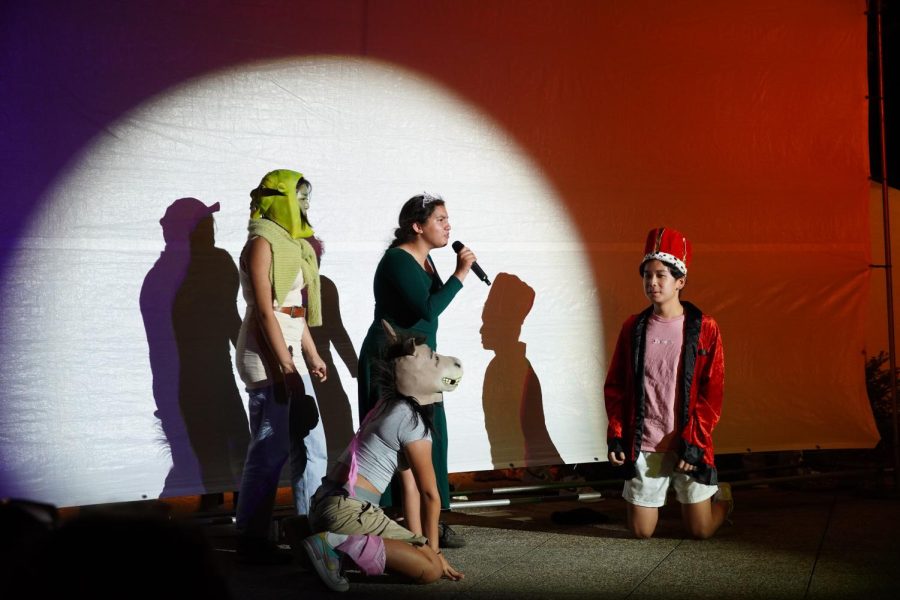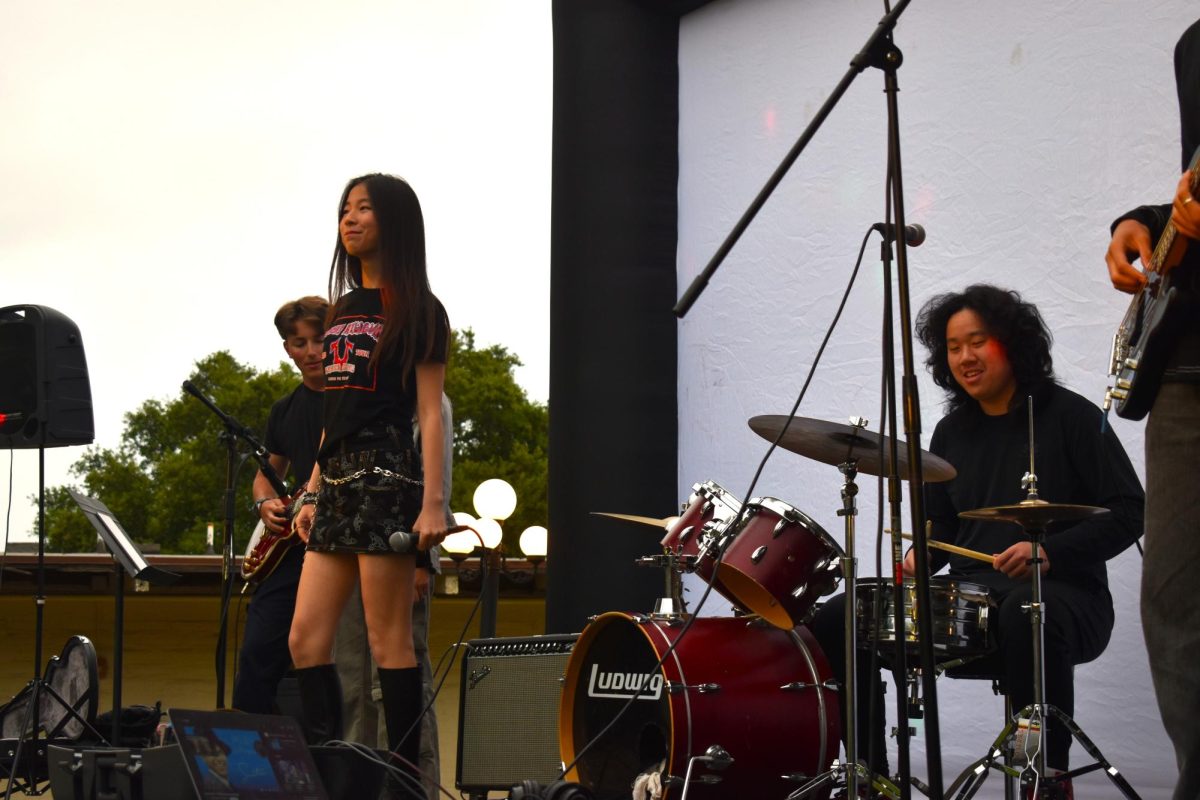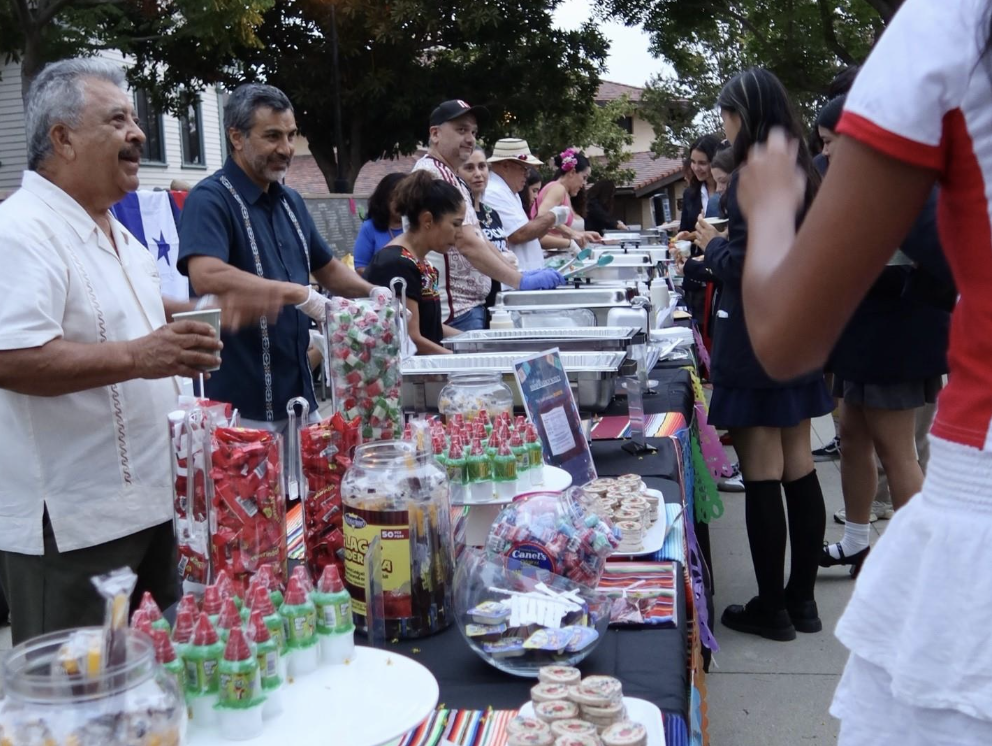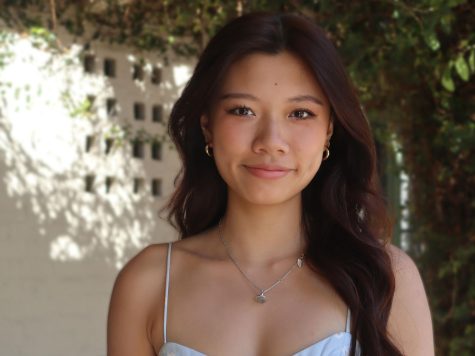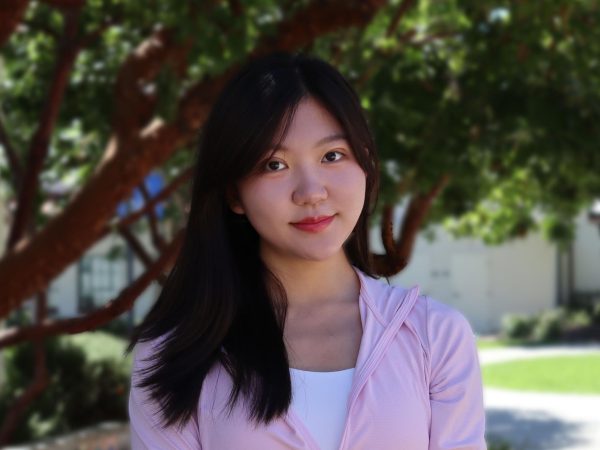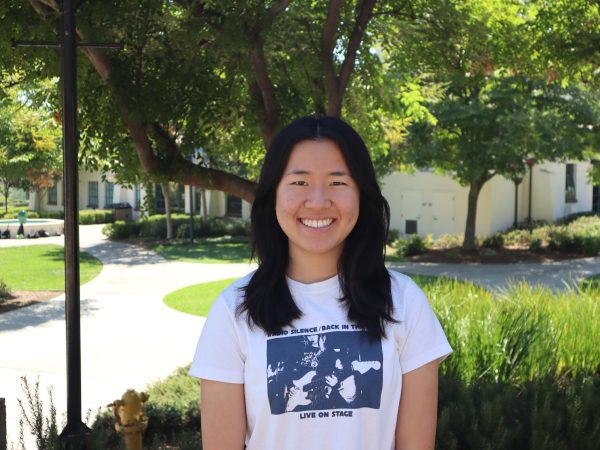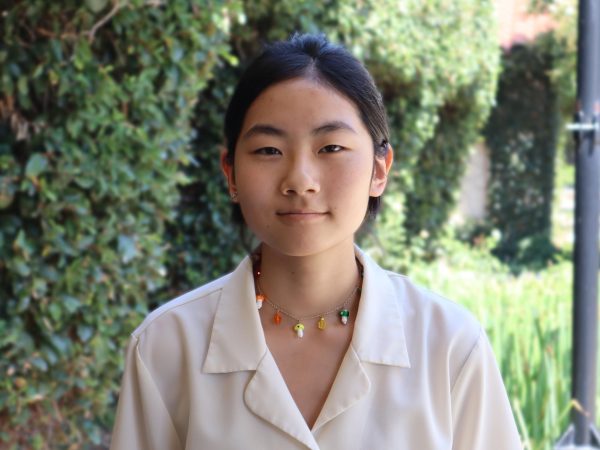The seniors cheered and screamed their class chant proudly: “Who are we? ‘23!” Other classes began to trickle out of the quad, but Yoyo Meng (‘23)’s call to attention halted all movement. Seniors whispered amongst themselves, a gut feeling of knowing something was wrong: did they get disqualified?
Then Yoyo revealed the news. The sophomores had won the skit.
Theme Night: the climax of Theme Week. Students work for weeks on their skits—practicing, performing, and dancing. The purpose of this school-wide event is to promote class unity and cooperation, but this year’s Theme Night seemed to do the opposite.
Adhering to the theme, each skit needed to put a fairytale spin on each class’s assigned decade. The class of ‘26 successfully completed their first Theme Night performance, inspired by the story of Snow White and the Seven Dwarves, who solved a 70s mystery. The class of ‘25 presented an 80s-themed Back to the Future meets Red Riding Hood show. Hansel and Gretel from the class of ‘24 flew through 90s-themed fairytales on a magic carpet. Finally, the class of ‘23 performed a Y2K Snoop Dogg Cinderella story” featuring 50 Cent, Paris Hilton, and other iconic 2000s figures.
For this year’s judge panel, student government invited Lauren Hartle, Interim Co-Chair of the Humanities Department; Anthony Flucker, humanities and art teacher; and Armando Amezcua, Food Service Director. Each judge received a 20-point rubric with four categories that assessed storyline and thematic integration, visual presentation, unity dance, and overall class spirit. In the end, the judges compiled the scores, deducting points for penalties such as overtime, and ranked the winners.
After each class delivered their performances, a conflict arose regarding the announcement of Theme Night’s winner. Initially, the seniors were declared winners of the skit, but in the middle of their celebration, WSC student body president Yoyo Meng announced that the results were incorrectly read.
“After all the skits, the judge panel had the results,” said Jolina Zhao (‘23), VWS student body president. “In dim lighting and a loud environment, I read the wrong results. A lot of miscommunications happened.”
The confusion behind this moment sparked a barrage of emails between the sophomores and seniors, carrying on all through Saturday night and onto the next day.
“I think our grade instigated the fight [on STAS], and the seniors were mean too, but everyone was just mean to each other,” Jay Song (‘25) said.
The STAS argument began with a request for a video of the class of ‘25’s performance, and quickly escalated into emotion-filled paragraphs, annoyed comments, and scattered remarks distracting from the topic of Theme Week. Students replied to the 400-person email chain and left messages ranging from humorous to indignant.
In response to this dispute, Sarah Lantz, the VWS Dean of Students, sent an email the following Monday thanking students for their participation, releasing official scores, reminding students about the intended spirit of Theme Night, and recognizing the confusion surrounding the incorrectly reported results.
The results revealed that seniors won the dress up competition, juniors won the spirit events, and sophomores won the skit. In colorful pink letters, Dean Lantz confirmed that the seniors were the overall winners and concluded with a request to end the STAS quarrels.
“Theme Week kind of takes on this life of its own, and it’s not a simple class competition,” Dean Lantz said. “There’s a lot more going into it, and a lot more time, energy, and thought, and my concern about that is that it takes away from the fun and spirit of what the event is supposed to be.”
These conflicts over email reminded students of the infamous bee incident, a debate over the appropriate treatment of a bee infestation in the library that primarily took place on STAS. Students saw first-hand how miscommunication and targeted messages can negatively impact community dynamics, but the lessons learned from this experience were not considered here.
“Personally, I think [STAS] could be used as a fun and unserious way of communicating with the student body or asking for help with surveys and notifying important announcements,” Marina Saeger (‘23) said. “But I think in the future, people should try to be more careful about others’ feelings and realize that they are real people behind the screens.”
Between the lines of angry STAS conversations was an overwhelming expression of senior disappointment, a culmination of various factors including the loss.
“I think as the senior class, we were really looking for validation and a clean ‘dub.’” said Yvette Shu (‘23), senior class president. “Our entire sophomore and junior years were overshadowed by something bigger than us: both the pandemic and the class of 2022. So, for our last year, we really wanted it to be a memorable win. Now it is sure memorable, but no one feels like we truly won.”
In this event, some seniors felt personally disrespected after nights of hard work.
“I was there from nine in the morning to ten at night… In the process, there are definitely people who don’t know how much work goes into it,” said Riley Fass (‘23), a senior who operated the stage tech. “When it was announced that the sophomores won, some sophomores got in my face.”
Riley contributed largely to the tech behind-the-scenes for every performance, helping with lighting, sound, and fixing microphones when needed.
The judges on the panel did not expect this fallout when judging for Theme Night and were just trying to appreciate the talent shown.
“I thought parts of [Theme Night] were really fun, and as a celebration of everybody’s work, it’s great; it gets to highlight the great collaboration that everyone is working on,” Dr. Hartle said. “However, I don’t think it’s fun to evaluate, because everyone worked hard. Somebody is going to be disappointed no matter what, but it seemed to factor into animosity in the end.”
Contrary to its positive intentions to promote class spirit and relieve stress from busy academic work, this year’s Theme Night generated spiteful conversations that detracted from its original goal. No matter who becomes the winner, all classes should support everyone’s work and treat each other with respect.


